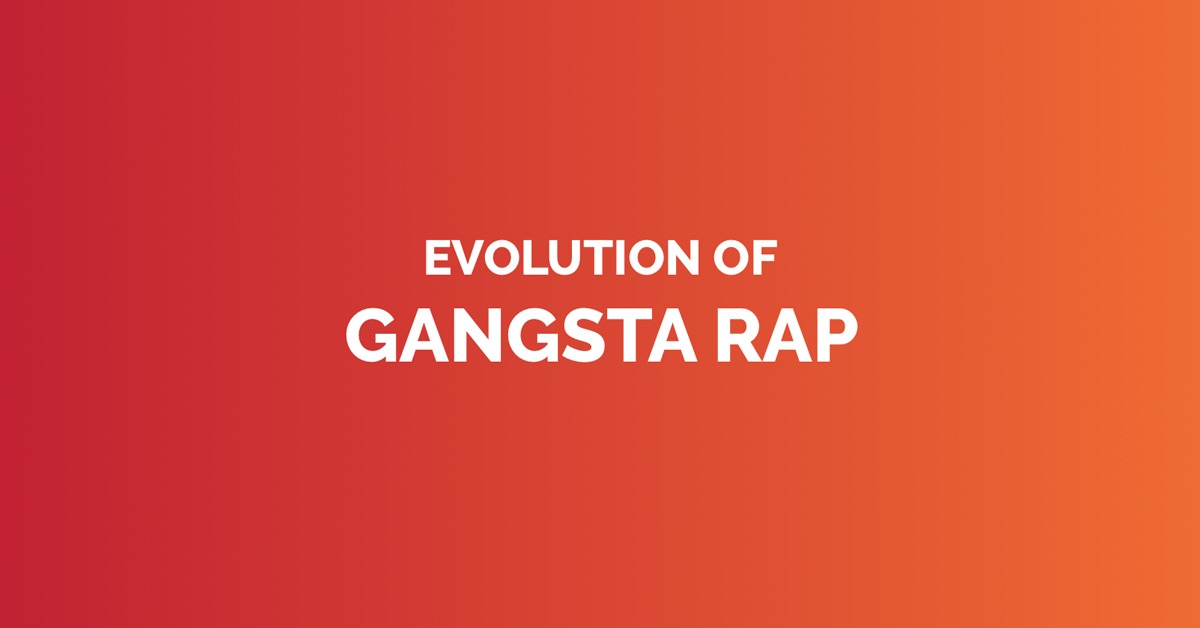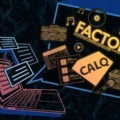History
By the mid 80s, rap had reached the mainstream, with artists like Run-DMC hitting high on the Billboard Hot 100. However, while the hip hop sound had originated from the streets, the lyrics of these charting songs didn’t resonate with those living in the slums of New York, Los Angeles, Philadelphia, and beyond. Gangsta rap was the musical response to this dissonance, with grittier, braggadocious lyrics that spoke of life in poverty-stricken areas where crime and drugs were an everyday reality.
Influences
Poverty and gang violence were major themes in gangsta rap lyrics, as were social and racial inequality. Musically, minor key samples were often used over upbeat jazzy ones, and ominous gloomy synth stabs made their way into these songs as well.
Sound
In its early days, gangsta rap used homemade beats created on the Roland TR-808 drum machine. However, this quickly transitioned to more slickly produced rhythms based on fantastic samples from crate-digging DJs. Gangsta rap lyrics have a tendency to be violent and self aggrandizing, but they also talk about class and racial struggles.
Schoolly D – “P.S.K. ‘What Does It Mean’?”
Philadelphia, Pennsylvania, 1985
This track is considered one of the first gangsta rap songs, and its title alludes to Schoolly’s affiliations with the Park Side Killas gang. You can hear a direct link between Schoolly D’s aggressive rapping on “P.S.K.” and Ice-T’s vocals on “6 ‘N The Mornin’.”. Ice-T would later claim that he based his style on this song.
Ice T – “6 ‘N the Mornin'”
Los Angeles, California, 1987
Ice-T lays out the usual topics of gangsta rap; prison time, violence against women, guns, drugs, shooting dice, and just about everything else that happens during a typical day of the street-savvy gangster.
Boogie Down Productions – “9mm Goes Bang'”
New York City, New York, 1987
This sparse track leaves lots of room for its dark lyrics to stand at the forefront of the mix. It’s considered to be one of the first gangsta rap records commercially released.
N.W.A. – “Straight Outta Compton”
Compton, California, 1988
N.W.A.’s “Straight Outta Compton” took gangsta lyrics to the next level. Featuring menacing lyrical delivery and fantastic drum samples, the track brought the genre into the mainstream.
Ice Cube – “No Vaseline”
Los Angeles, California, 1991
In what would be the first of many epic beefs in the hip hop community, Ice Cube absolutely blasts his former bandmates from N.W.A. on “No Vaseline”.
N.W.A. – “Appetite For Destruction”
Los Angeles, California, 1991
Despite being one of the most famous gangsta rap groups of all time, N.W.A. only released two albums. On their second record they were true to form. Tracks like “Appetite For Destruction” again put the harsh world of the streets on display.
Cypress Hill – “How I Could Just Kill a Man”
Los Angeles, California, 1991
Cypress Hill was one of the first Latino rap groups to achieve popular fame. “How I Could Just Kill A Man” was their first major hit, and it features the pinched, signature sound of B-real’s rapping.
N.W.A. – “Alwayz Into Somethin'”
Compton, California, 1991
Although it would be their final album, Efil4zaggin (“Niggaz4Life” backwards) reaffirmed the musical capabilities of N.W.A. in the face of Ice Cube’s continued solo success. The album is considered by many to be Dr. Dre’s finest production work, and with its wavering synth sounds, it heralded the beginning of the G-funk era.
Dr. Dre & Ice Cube – “Natural Born Killaz”
Terminal Island, California, 1994
Dr. Dre and Ice Cube collaborated for the first time since N.W.A.’s break up on “Natural Born Killaz”, a track with plentiful references to murder and serial killers. The track was featured on the soundtrack of the Dr. Dre and Fab Five Freddy directed film, Murder Was The Case.
50 Cent – “In Da Club”
Los Angeles, California, 2003
50 Cent was still an up-and-comer Eminem protégé when he dropped “In da Club” in advance of his debut album Get Rich or Die Tryin’. Fortunately for his future career and gangsta rap fans everywhere, the single was a masterclass in hip hop lyricism and delivery, erasing any lingering doubts that 50 was only clinging to Eminem’s fame.






















